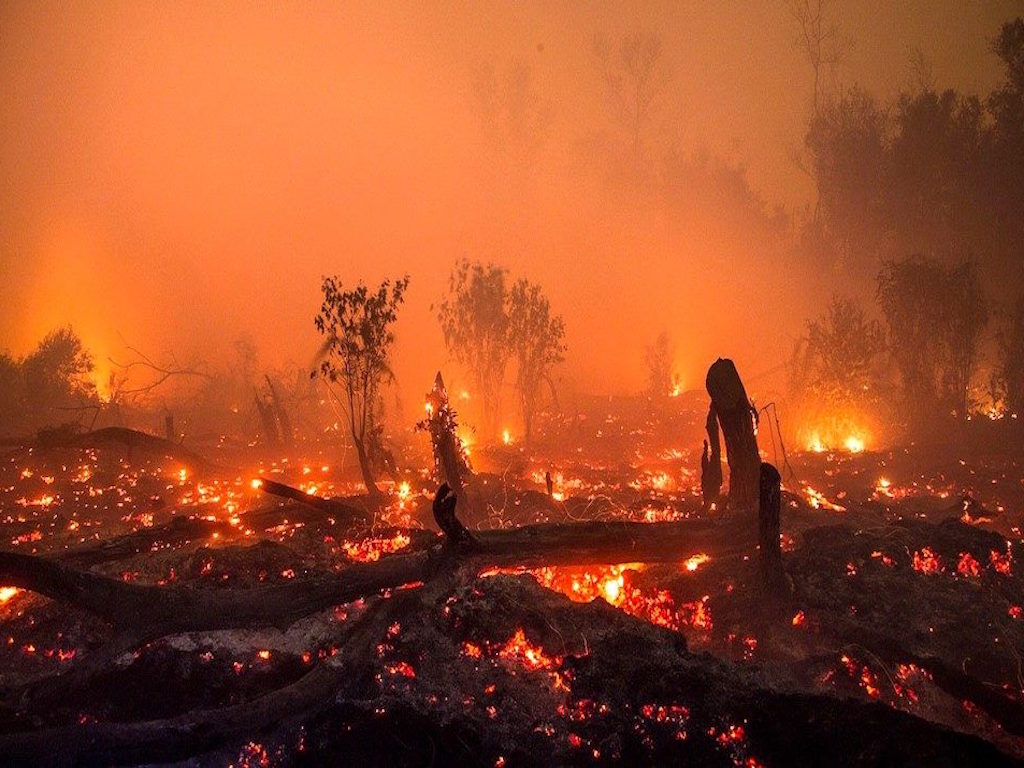4 Mins Read
The manufacturers of global brands such as Oreo cookies and Cadbury’s chocolate bars are among some of the major companies still sourcing palm oil from producers linked to the Indonesian forest fires. According to a brand new Greenpeace report released last week, multinational consumer goods companies such as Mondelez International, Nestlé, Unilever and Procter & Gamble (P&G) have been affiliated with palm oil suppliers that have been linked to forest burning in the region. Despite the sustainability pledges that these multinational giants have pledged, these new findings suggest that there remains a huge gap between corporate commitments and the reality of operations in their supply chain.
In a new Greenpeace report published on November 4th 2019, dubbed “Burning down the house,” researchers found that companies have continued to source from the worst offenders linked to Indonesian deforestation. These include major global groups such as Unilever, Mondelez, Nestlé and P&G – all of which are parent companies of famous snacks such as KitKats, Magnum ice-cream, Ritz crackers and Oreo cookies and personal care brands such as Lux, Crest and Axe. Together, these 4 companies are each linked to up to 10,000 fire hotspots through their purchasing from producer groups that have had the most fires in 2019.
Researchers came to these findings after collecting data from plantation companies with the highest number and largest area of fires on their concessions between January and September this year, and those who have been previously sanctioned for forest burning activities. According to Greenpeace data, 21 of the 30 guilty groups recorded were current members of the Roundtable on Sustainable Palm Oil (RSPO), the leading certification body for ethical “deforestation-free” palm oil production. While Mondelez and Nestlé have sourced palm oil from 28 of these groups, Unilever buys from at least 27 while P&G are linked to 22.
“Companies have created a facade of sustainability. But the reality is that they source from the very worst offenders across the board. The companies responsible for the fires and those who financially benefit from them should be held accountable for these environmental atrocities and the devastating health impacts caused by the fires,” said Greenpeace Indonesia senior forest campaigner Annisa Rahmawati.
The Indonesian fires made headlines earlier this year after it spread a huge blanket of haze across Southeast Asia, burning off precious forests and trees that are the key absorbers of carbon dioxide from our air, which helps alleviate our climate crisis and global warming. Not to mention, these fires have affected the health of at least 30 million people across the entire region from rural Indonesia to Singapore, Malaysia and Thailand. Fires in Indonesia have been mostly started to clear land for palm cultivation and planting, and have, as of the end of September this year, burned off over 8,500 square kilometres of forest land. Figures from the Global Fire Emissions Database (GFED) indicate that this year’s fires have generated as much as 465 million tonnes of carbon dioxide as of the end of October, which is the same as the total greenhouse gas emissions of the United Kingdom in an entire year.
READ: 8 Things You Can Do To Help Save Our Rainforests
The revelations made by Greenpeace shows that despite previous so-called attempts to cut off ties from deforestation-linked palm oil suppliers, multinational companies have across the board, made little changes. Nestlé and Unilever, for instance, have previously removed the Salim Group, one of the key companies accused of participating in illegal deforestation from its list of suppliers. However, they have turned a blind eye to the umbrella’s subsidiaries such as Salim Ivomas Pratama, who have engaged in similar illegal and unethical practices. According to the report, other companies being held by large traders are still routinely being used without proper monitoring, such as Cargill.
The disclosure of continued business-as-usual approaches unveiled by this report underlines the urgent need for radical changes to be made in the palm oil industry if we are to be able to fight our current climate crisis and it’s detrimental impact on humankind. There not only needs to be stricter government oversight of existing regulations against deforestation, but corporates must adhere to and implement their ethical commitments. Rather than just publicly posturing with a nod to deforestation, they must cut ties with all plantations associated with burning practices, regardless of any profit losses they may incur. As consumers, we need to stop purchasing from these very brands to make our voices heard that we will not tolerate irresponsible corporate behaviour.
“If the forests are gone, we can’t do anything…We all know that there’s no business on a dead planet,” said Rahmawati.
Lead image courtesy of Jakarta Post / Björn Vaughn.




